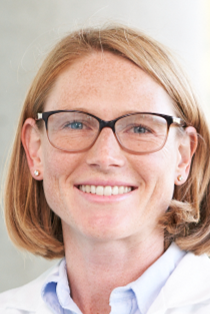Dr. Catharina Lisson
Dr. Catharina Lisson is a senior radiologist and research group leader at the University Hospital Ulm, specializing in oncologic imaging and image-based precision diagnostics. Her research focuses on the integration of radiomics, machine learning, and deep learning to extract clinically relevant biomarkers from CT and MRI data across multiple tumor types.
Her work spans diverse oncologic entities, including mantle cell lymphoma, testicular germ cell tumors, bladder cancer, and chondroid tumors. In these studies, she applies high-dimensional imaging analysis to support risk stratification, staging, treatment monitoring, and non-invasive tumor characterization. Examples include the prediction of relapse in mantle cell lymphoma using longitudinal CT-based radiomics, the integration of clinical and radiomic data to detect lymph node metastases in testicular cancer, and the evaluation of imaging timing effects in bladder cancer staging.
Her research combines advanced AI techniques—such as 3D convolutional neural networks—with domain-specific knowledge in oncology and radiology, enabling novel imaging-based models for personalized decision-making. Across all projects, tumor heterogeneity emerges as a key biomarker for treatment response and prognosis.
Dr. Lisson is a principal investigator in the DFG-funded graduate program KEMAI (Knowledge Extraction for Medical Artificial Intelligence), where she leads interdisciplinary projects at the interface of radiology, computer science, and molecular medicine. She also co-leads the translational AI consortium XAIRAD, which focuses on explainable, clinically applicable AI solutions in diagnostic imaging.
Her academic work has been supported by the Brigitte Schlieben-Lange Fellowship, a program of the Ministry of Science, Research and the Arts Baden-Württemberg promoting excellent clinician scientists with family responsibilities on the path toward professorship.
In addition to her research, Dr. Lisson is actively engaged in medical education, scientific mentorship, and national academic committees. Through her work, she aims to establish AI-based imaging biomarkers as a standard tool in precision oncology.

